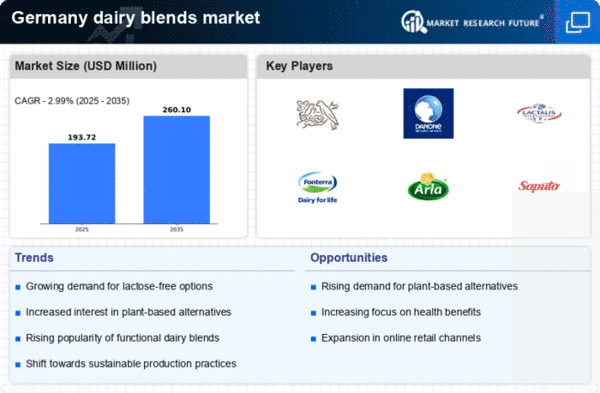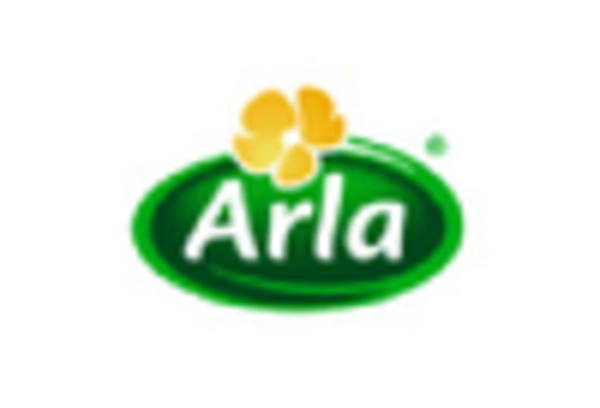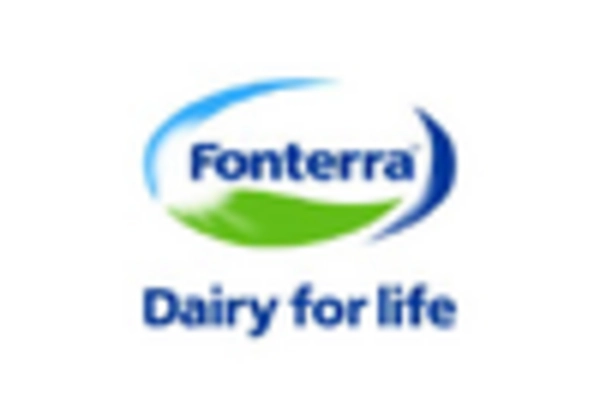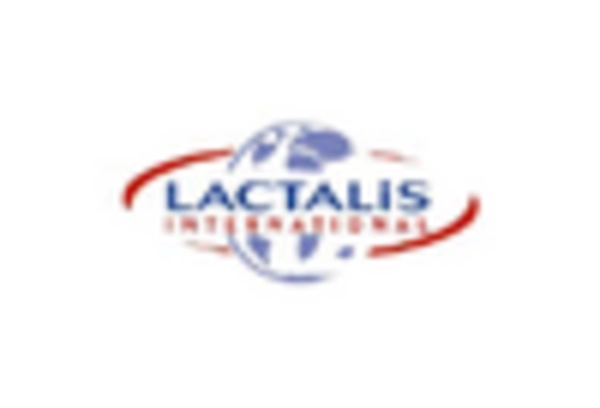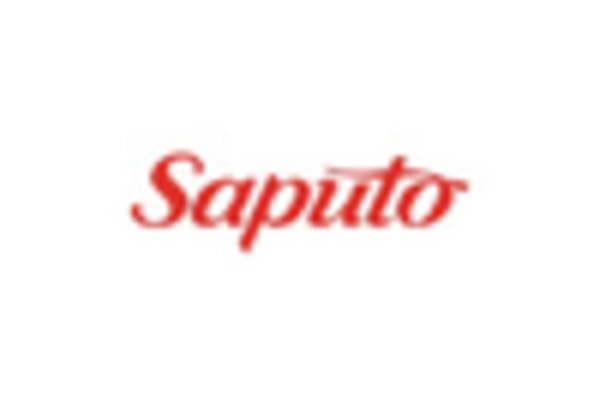Increased Focus on Local Sourcing
The dairy blends market in Germany is increasingly characterized by a focus on local sourcing. Consumers are becoming more interested in the origins of their food, leading to a preference for products made from locally sourced ingredients. This trend is driven by a desire to support local farmers and reduce the carbon footprint associated with transportation. Recent surveys indicate that approximately 70% of consumers express a preference for locally sourced dairy products. In response, manufacturers are emphasizing transparency in their supply chains and promoting dairy blends that highlight local ingredients. This driver suggests that the dairy blends market will likely continue to evolve, with an emphasis on sustainability and community support, aligning with consumer values.
Innovations in Product Development
Innovations play a crucial role in shaping the dairy blends market in Germany. The industry is witnessing a wave of new product developments aimed at enhancing flavor, texture, and nutritional value. Manufacturers are increasingly experimenting with different combinations of dairy ingredients, such as yogurt, cheese, and cream, to create unique blends that appeal to diverse consumer tastes. Recent reports indicate that the introduction of innovative dairy blends has contributed to a 20% increase in market share for certain brands. Additionally, advancements in processing technologies allow for better preservation of nutrients and flavors, further driving consumer interest. This focus on innovation not only attracts new customers but also retains existing ones, suggesting a dynamic future for the dairy blends market.
Rising Demand for Convenience Products
The dairy blends market in Germany experiences a notable surge in demand for convenience products. As consumers increasingly seek quick and easy meal solutions, dairy blends that combine various dairy ingredients are becoming more popular. This trend is particularly evident among busy families and working professionals who prioritize time-saving options. According to recent data, the convenience food sector has grown by approximately 15% in the last year, indicating a shift in consumer preferences. Dairy blends, which offer versatility in cooking and baking, align well with this demand. The industry is adapting by introducing ready-to-use dairy blends that cater to the fast-paced lifestyle of modern consumers. This driver suggests that the dairy blends market will continue to thrive as convenience becomes a key factor in purchasing decisions.
Shift Towards Plant-Based Alternatives
The Germany dairy blends market is experiencing a notable shift towards plant-based alternatives. As consumers become more environmentally conscious and health-oriented, there is a growing demand for dairy blends that incorporate plant-based ingredients. This trend is particularly relevant among younger demographics who are more inclined to explore non-dairy options. Recent market analysis suggests that the plant-based dairy segment has seen a growth rate of around 25% in the last year. Manufacturers are responding by creating innovative dairy blends that combine traditional dairy with plant-based components, appealing to a broader audience. This shift indicates a potential transformation in the dairy blends market, as it adapts to changing consumer preferences and dietary trends.
Growing Interest in Nutritional Fortification
The dairy blends market in Germany is significantly influenced by the growing interest in nutritional fortification. Consumers are increasingly aware of the health benefits associated with fortified dairy products, leading to a rise in demand for blends enriched with vitamins, minerals, and probiotics. This trend is particularly prominent among health-conscious individuals and families seeking to enhance their dietary intake. Recent statistics reveal that the market for fortified dairy products has expanded by approximately 12% over the past year. As a result, manufacturers are responding by developing dairy blends that not only taste good but also offer added health benefits. This driver indicates that the dairy blends market will likely continue to evolve, focusing on nutritional enhancements to meet consumer expectations.


